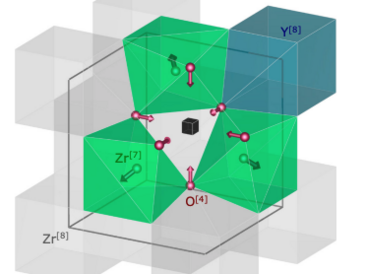Ella Mara Schmidt; Paul Benjamin Klar; Yasar Krysiak; Petr Svora; Andrew L. Goodwin; Luke Palatinus
Nature Communications 14 (2023)
doi: 10.1038/s41467-023-41934-y
Structure-property relationships in ordered materials have long been a core principle in materials design. However, the introduction of disorder into materials provides structural flexibility and thus access to material properties that are not attainable in conventional, ordered materials. To understand disorder-property relationships, the disorder – ie, the local ordering principles – must be quantified. Local order can be probed experimentally by diffuse scattering. The analysis is notoriously difficult, especially if only powder samples are available. Here, we combine the advantages of three-dimensional electron diffraction – a method that allows single crystal diffraction measurements on sub-micron sized crystals – and three-dimensional difference pair distribution function analysis (3D-ΔPDF) to address this problem. In this work, we compare the 3D-ΔPDF from electron diffraction data with those obtained from neutron and x-ray experiments of yttria-stabilized zirconia (Zr 0.82 Y 0.18 O 1.91 ) and demonstrate the reliability of the proposed approach.
© 2023 The Author(s) ( CC BY 4.0 )


